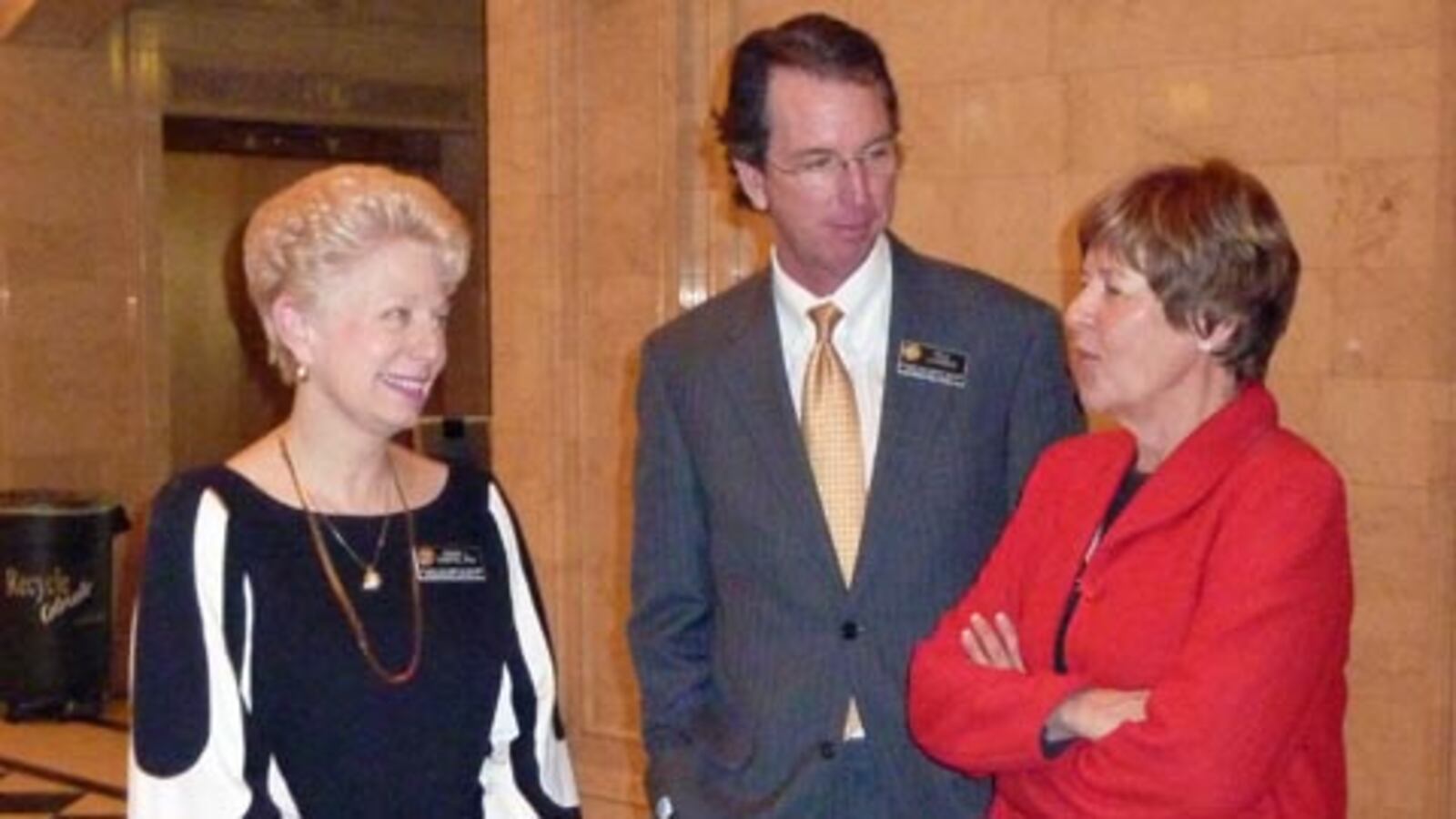You’d think being one of Colorado’s most influential education policy makers would mean you wouldn’t have to live with your parents. Not so for Debora Scheffel.
Scheffel, a Republican member of the State Board of Education and champion on student data privacy, was first elected to represent the 6th Congressional District in 2010. But the following year, her home in Douglas County was drawn out of the district.
While Scheffel, the dean of the school of education at Colorado Christian University, was allowed to serve out her term, she had two choices as this fall’s election neared: leave the board, or move. She chose the latter.
“If you want to represent a certain district, you have to live in it,” she said Friday. “It’s really that simple.”
The unusual move allows Scheffel to defend her seat in what’s shaping up to be one of the most watched state board races this fall. Scheffel faces a challenge by Democrat Rebecca McClellan, a former Centennial city council member. Republicans currently control the board by one seat, so a win by a Democrat could flip the balance of power at a time when the board is poised to revisit some thorny education issues.
Among the most consequential decisions the board will face after the election: hiring a new commissioner, crafting policies aligned to new federal law, and reviewing — and potentially revising — the state’s academic standards.
Scheffel won her seat with 64 percent of the vote in 2010. This year, she faces a tougher road because the 2011 redistricting created a district of diverse suburban areas that is more evenly split among Democrats, Republicans, and unaffiliated voters.
To give herself a chance at re-election, Scheffel moved in with her parents in September and then updated her voter registration and candidate affidavit. Their home on Forest Canyon Drive is just inside the 2011 boundaries.
As part of her decision, Scheffel is selling her home in Parker.
“It’s was a holistic decision,” she said. “I had to think of it from a number of different lenses. And I felt this was a good solution. I care about the work on the State Board. I love my folks, and it works.”


